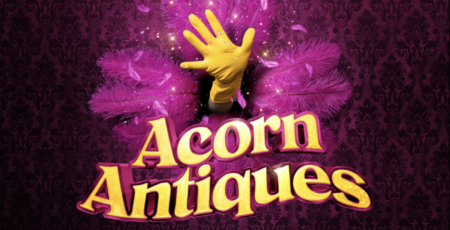As Pride Month celebrations unfold, ‘Serpentina’ by Faith Consiglio emerges as a beacon of queer representation and empowerment. Through a modern retelling of Greek mythology, the novel offers a gripping narrative that delves into themes of identity, transformation, and the courage to embrace one’s true self. Amid the vibrant backdrop of New York City, readers are invited to join a journey of self-discovery and acceptance, resonating with the ongoing fight for LGBTQIA+ rights. ‘Serpentina’ not only entertains but also serves as a symbol of inclusivity and strength, reflecting the power of embracing authenticity in a world where personal stories hold political significance.
In a season defined by rainbows, parades, and celebrations of love in all its forms, it’s vital to underscore the significance of representation in media. While the streets are awash with vibrant colours for Pride Month, art and literature advocating for non-heteronormative love narratives still have a long road ahead. Enter “Serpentina,” the latest young adult (YA) science fiction novel by Faith Consiglio, which leads this charge, offering queer representation through a gripping, modern reimagining of Greek mythology.
“Serpentina” sails into literary waters, weaving the tale of a high school senior in New York City who undergoes a dramatic transformation to become the modern embodiment of the ancient Medusa. Medusa, often cast aside as a villain in classical tales, finds new life and complexity within Consiglio’s narrative, which promises both a thrilling adventure and an emotional voyage into self-discovery and acceptance.
Faith Consiglio, whose eclectic experiences in psychiatry, theatre, and art history inform her empathetic storytelling, considers “Serpentina” not just a book but a call to arms. “It’s an empowering story,” she notes, “one that explores the courage it takes to stand apart and make a difference.” Through the heroine’s journey, readers are offered a powerful exploration of identity, transformation, and the strength it takes to claim one’s true self.
In a city as diverse and dynamic as New York, the novel’s setting enriches the narrative, a concrete jungle where modern struggles blend with ancient legends. The protagonist’s metamorphosis is symbolic of the journey many queer individuals undertake—embracing their true selves amid societal pressure to conform.
The underlying themes of “Serpentina” resonate profoundly within today’s socio-political landscape, where the fight for LGBTQIA+ rights continues to encounter resistance. Representations like Consiglio’s aren’t just about visibility but about giving young queer readers a hero who battles both fantastical evils and relatable personal conflicts. It’s a nuanced reflection of a world where the personal is indeed political.
For the queer community, and especially young adults navigating their unique paths, literature like “Serpentina” isn’t just entertainment but a mirror reflecting their potential for strength and bravery. As the novel hits digital shelves, it coincides perfectly with the celebrations and reflections of Pride Month, adding another layer of meaning to this widespread movement of love and acceptance.
As queer representation in YA literature gradually blossoms, “Serpentina” stands tall, offering not just a captivating read but a symbol of the shift towards inclusivity. Those who revel in Greek mythology will find joy in the novel’s creative reinvention of familiar tales, while queer readers, in particular, might see echoes of their own journeys within the protagonist’s struggles and triumphs.
With the availability of “Serpentina” on Amazon, there’s a filing hope that young readers, irrespective of their sexual orientation, will find a story that entertains, empowers, and encourages a broader acceptance. The heartbeat of Consiglio’s narrative is clear: we’re all more powerful and more human when we embrace our true selves.
As the celebratory vibes of Pride Month transition into the sweltering days of summer, let “Serpentina” serve as both a thrilling escape and a beacon of representation. Amid the parades, the flags, and the cheers, this novel stands as a reminder that our stories—in all their diverse, challenging, and beautiful glory—deserve to be told and celebrated.
Let’s celebrate this new addition to the queer literary canon, and perhaps imagine a future where representation in media not only keeps pace with the strides in social justice but leads the way.




















